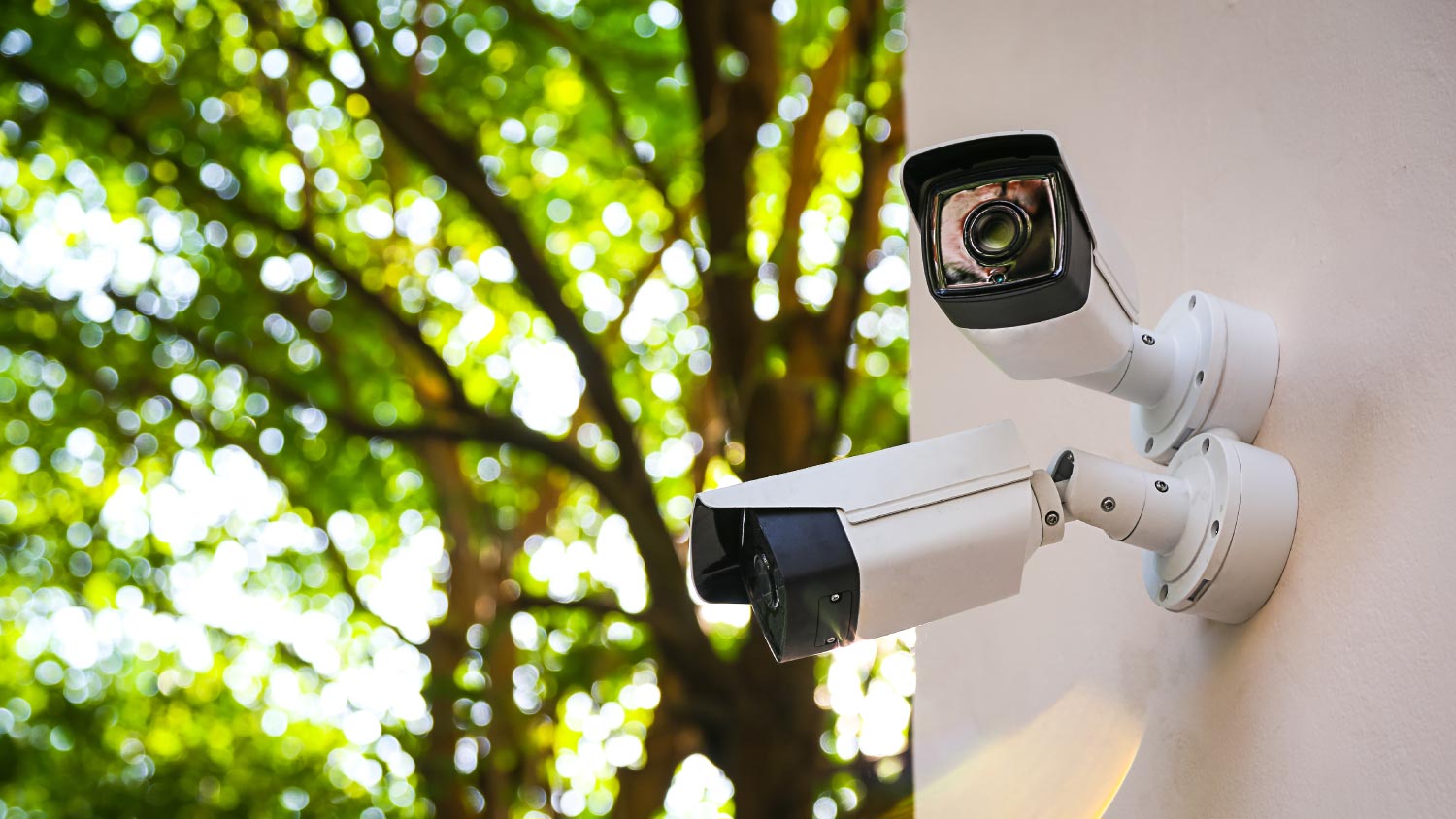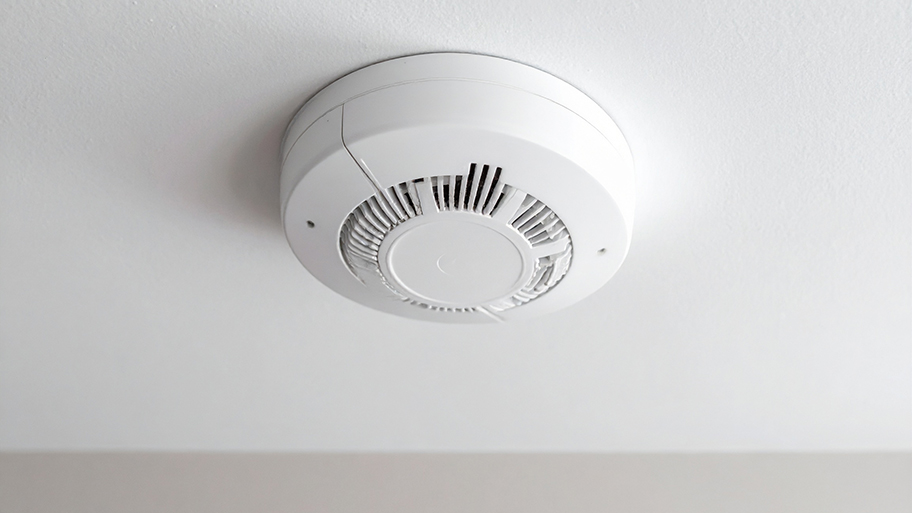
From warding off intruders to protecting from falls, bars on windows can make a home much more secure. Here’s how much it costs to install bars on windows.
You don’t need a security system for these shady sales tactics to raise an alarm


Door-to-door sales scams are the most common type of home security scam.
Fraudsters may also use fake websites, cold telephone calls, and emails.
Most home security system scams involve signing a bogus or deceptive contract.
To avoid a scam, ask for verification and read the fine print.
Unfortunately, your home security system might catch a burglar, but it won’t catch a scammer. Security system scams have been on the rise since 2018—and every type of homeowner is a target. In fact, some scammers seek out those with security signs on their front lawn. So, how can you avoid falling victim? If you know how to spot security company scams, you can stop them.
The home security industry is rife with scammers looking to con you into a contract or steal your credit card information and social security number. Fraudsters usually follow the same pattern.
Door-to-door sales scams are some of the most common. With this type of scam, a scammer will either work for a security company and use deceptive sales practices or pretend to work for a security company. It’ll play out two ways:
They’ll con you into signing a bad contract or a contract you didn’t want
They’ll make you buy something, then disappear with your money

Nothing free is ever truly free. In this common scam, providers offer up free equipment like alarm systems or security cameras hoping you don’t read the fine print. Once you sign on the dotted line, you’re left with exorbitant and on-going professional monitoring costs.
Sometimes, a salesperson pretending to work for your existing security company will contact you and offer to upgrade or replace your old system. Instead of an actual upgrade, they’ll try to confuse you and get you to sign a contract for a brand new security system. You’ll wind up paying two separate contracts to two different companies. To avoid this scam, contact your existing provider directly if you want an upgrade.
In this security system scam, a salesperson will claim that they’ve taken over your contract or your existing provider went out of business. The main goal is to get you to buy new equipment and/or sign a new contract, even though you’re already paying for a different contract with a different company. If your home security company is truly going out of business, you’ll know it. They’ll notify you via mail, telephone, or email—and they certainly won’t send someone to your door.
Some scammers use fake websites and bogus email accounts to collect confidential information. It will look like they’re selling various types of home security systems, but they’ll disappear with your money. If a website only accepts money transfers, it’s probably a scam. Legitimate security system companies accept credit cards, and sales reps will never contact you with a throwaway email account like Gmail or Yahoo.
Some home security companies will have a hidden auto-renewal clause for professional monitoring fees in the contract’s fine print. Companies use this to trick homeowners into a long-term commitment. Homeowners must cancel their service in writing before the renewal, or they’ll have to pay a penalty for early cancellation.
These tips will help you avoid most home security system scams.
To avoid security fraudsters, send away unsolicited salespeople. If you’re really interested in upgrading your home’s security, you can schedule an appointment with a trustworthy security company.
Not every door-to-door salesperson is a scammer. Some home security companies like Vivint and ADT still use this method. The difference is that fraudsters will usually be aggressive and have the following red flags:
They’re not wearing a company-specific uniform
They use scare tactics and false alarms (like bringing up local crime rates or mentioning violent crimes that didn’t happen)
They pressure you to let them inside then refuse to leave
They pressure you to sign a contract immediately
They claim to work for your current security company
They claim your provider is going out of business
To sniff out a scam, ask for a badge number, business card, and photo ID. Call your provider’s customer service and verify the information.
Before hiring a home security company, do some research:
Check the company’s website and social media accounts
Search for customer reviews and testimonials
Look at employee review sites to get a feel for business practices
Check contractor’s licenses through the National Association of State Contractors Licensing Agencies (NASCLA)
Don’t know where to start? Search the top-rated local home security services in your area on Angi.
Scammers may use limited-time offers to pressure you into signing a bad contract. Wait at least 24 hours before signing a contract so you can research all your options.
As a general rule, avoid giving out personal or financial information over the phone, through email, or to random people that show up at your door. If they call you, keep your lips sealed. If you call them, make a deal (after lots of research, of course).
Always read the fine print on your contract, even if that means you have to request a print copy. According to the Federal Trade Commission (FTC), your security system contract should include:
Installation price
Professional monitoring fees (annually, quarterly, or monthly)
Contract period
Discounts and deals
Written warranty
Security system owner’s manual
Cancellation terms
Two copies of cancellation forms (one for you and one to mail back to them)
The FTC gives you three business days to cancel a deal if you signed a contract anywhere that’s not the seller’s permanent place of business. In other words, if a door-to-door salesperson pressured you into a new contract you didn’t want, you’ve got 72 hours to raise the alarm. Use the cancellation forms in your contract.
From average costs to expert advice, get all the answers you need to get your job done.

From warding off intruders to protecting from falls, bars on windows can make a home much more secure. Here’s how much it costs to install bars on windows.

Motion-sensor lighting costs vary greatly because they have so many customizations available. Learn more by using this cost guide about motion-sensor lights.

Discover true smoke detector installation costs. Learn about average prices, cost factors, and tips to save on your smoke detector installation project.

To keep your property and loved ones safe, you might consider a security door for exterior entry points. Learn how to install a security door yourself.

Home security upgrades include installing security cameras, lighting, window and door upgrades, and more. Keep reading to see how to secure your home.

Home security begins at the front door. Check out our tips to improve your front entry door security as a barrier against unwanted intruders. There are many different strategies, from installing an entirely new door to an updated lock.